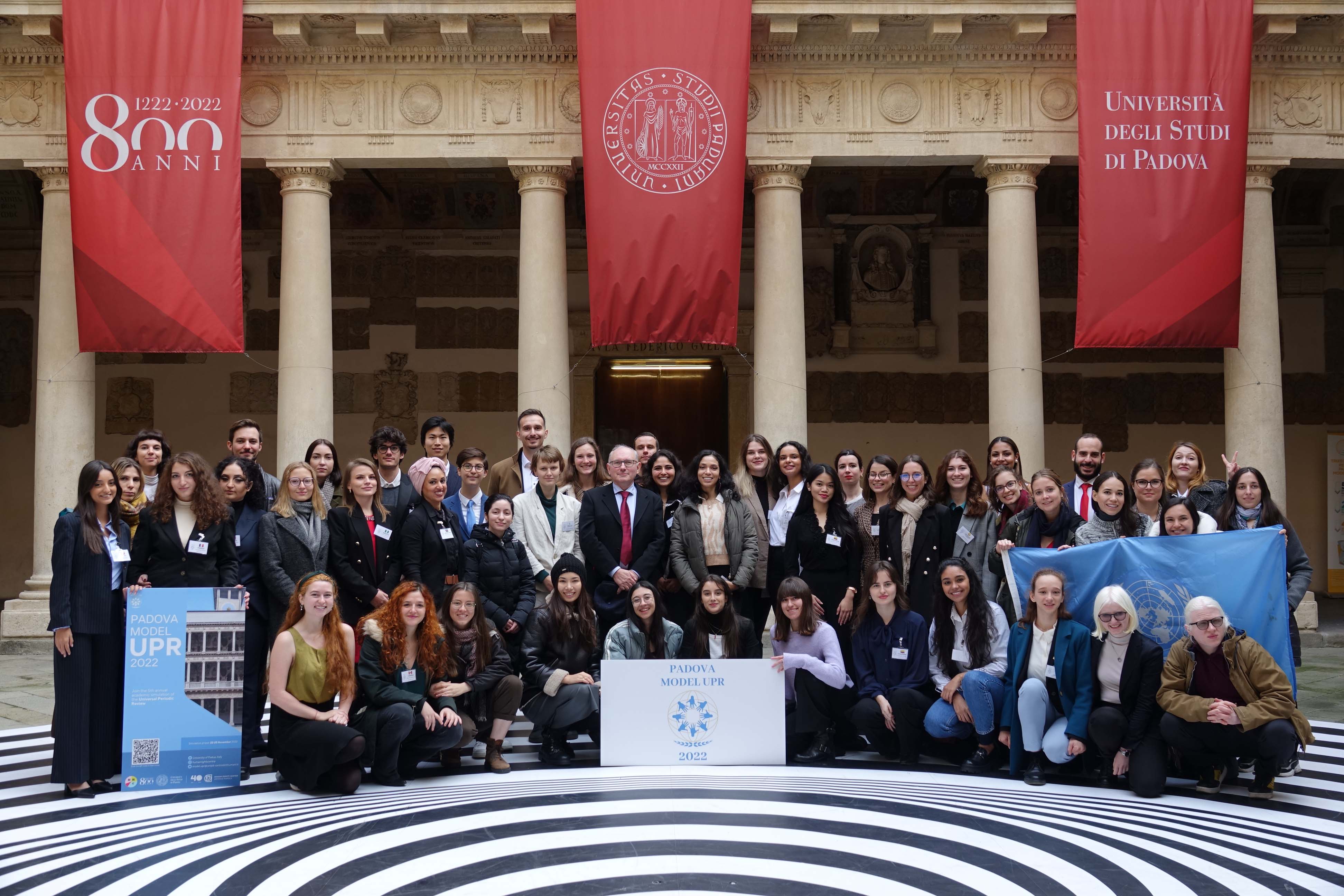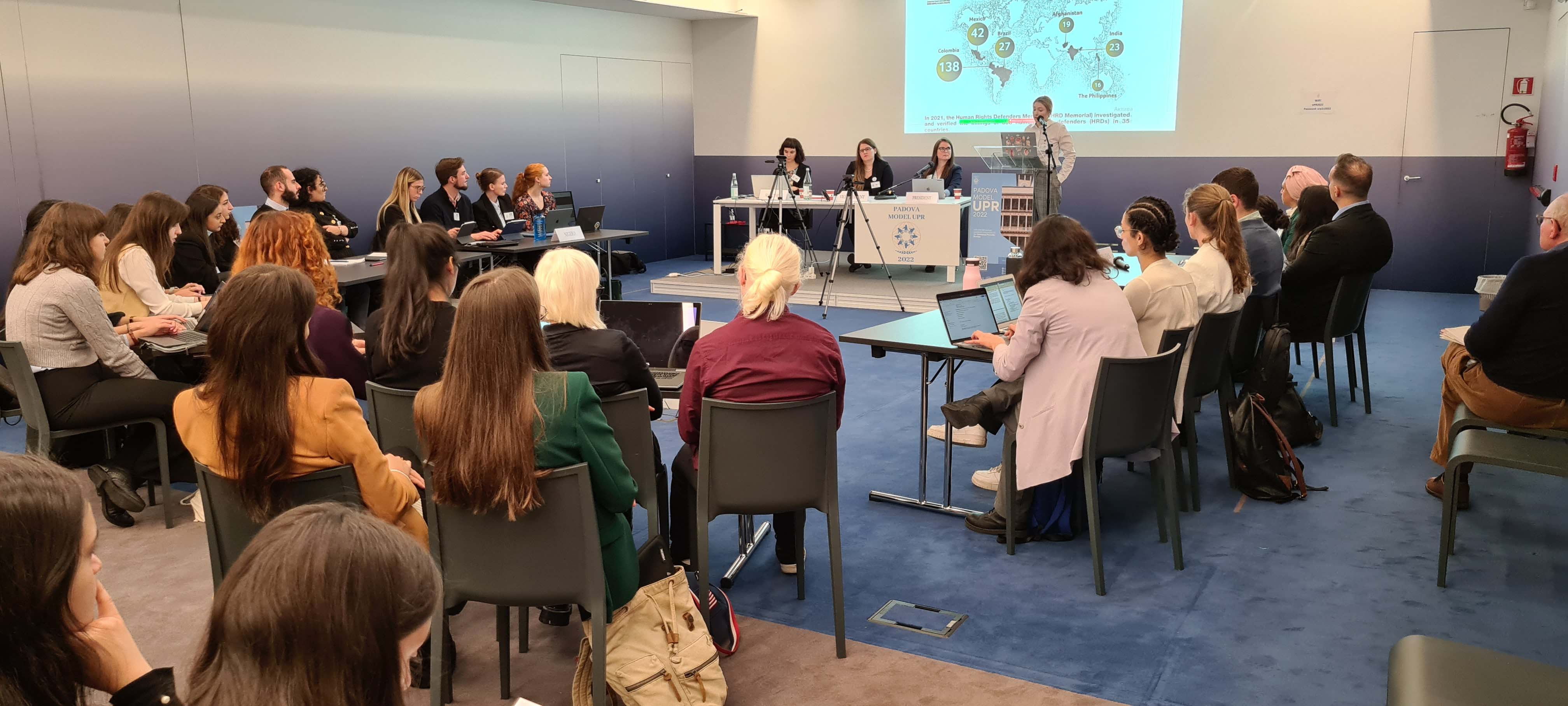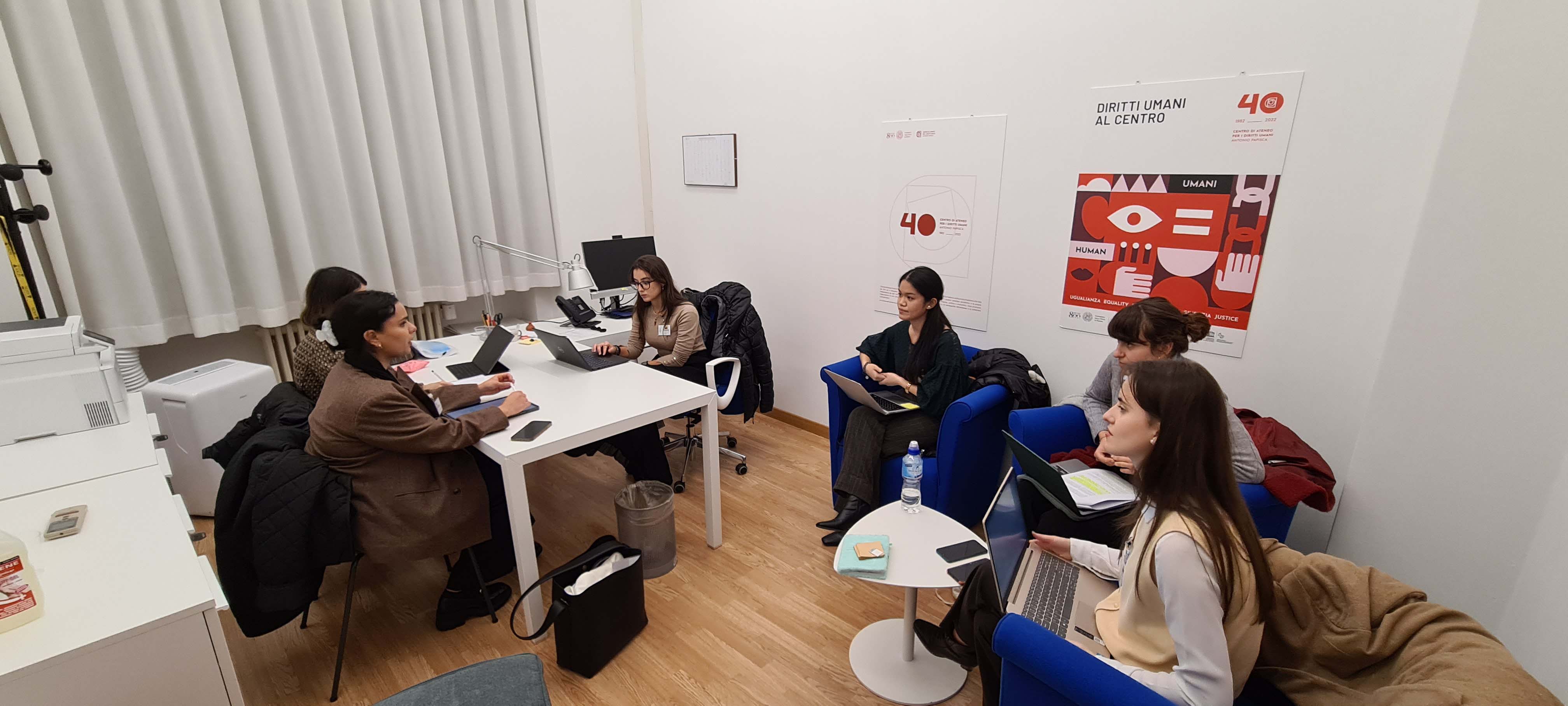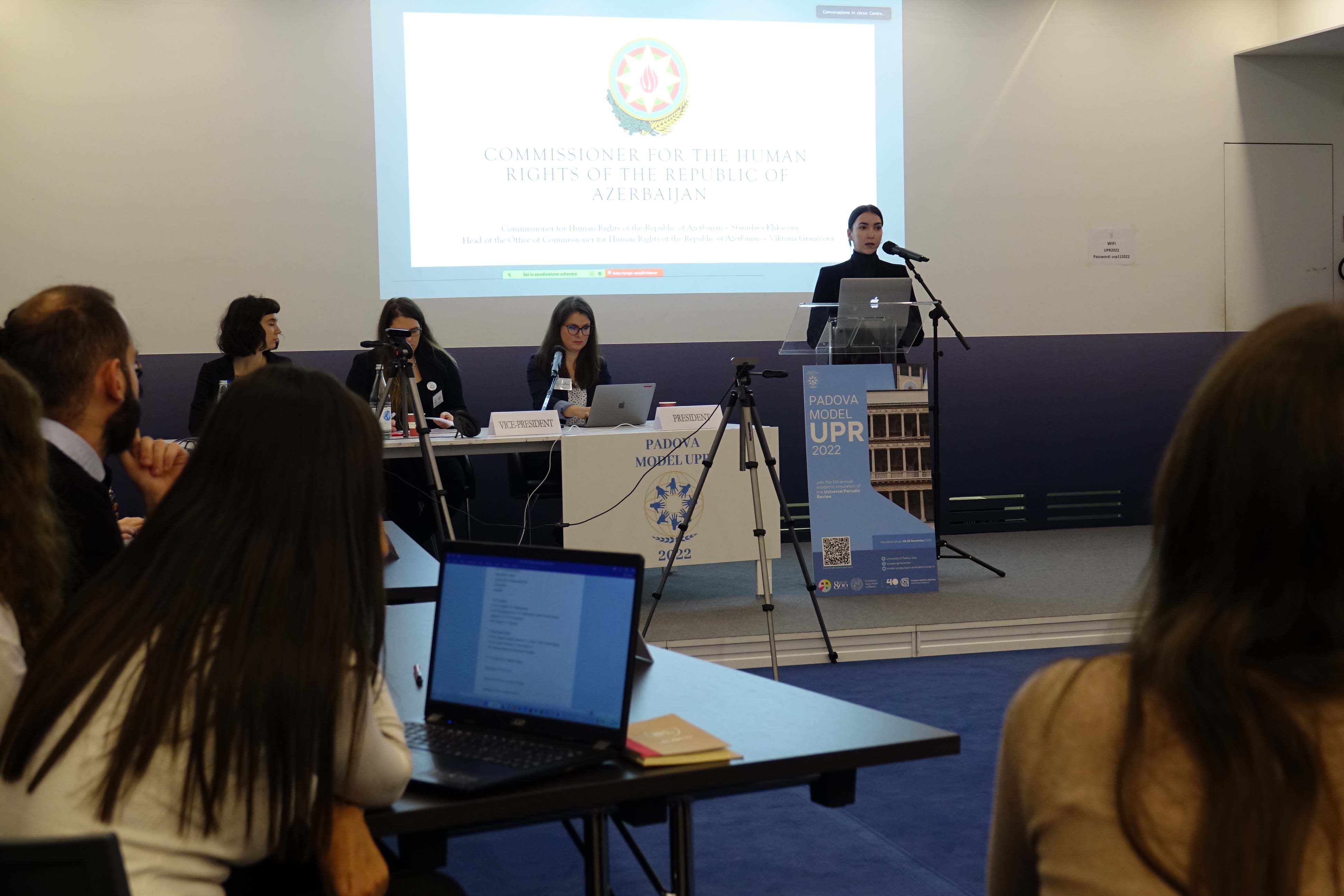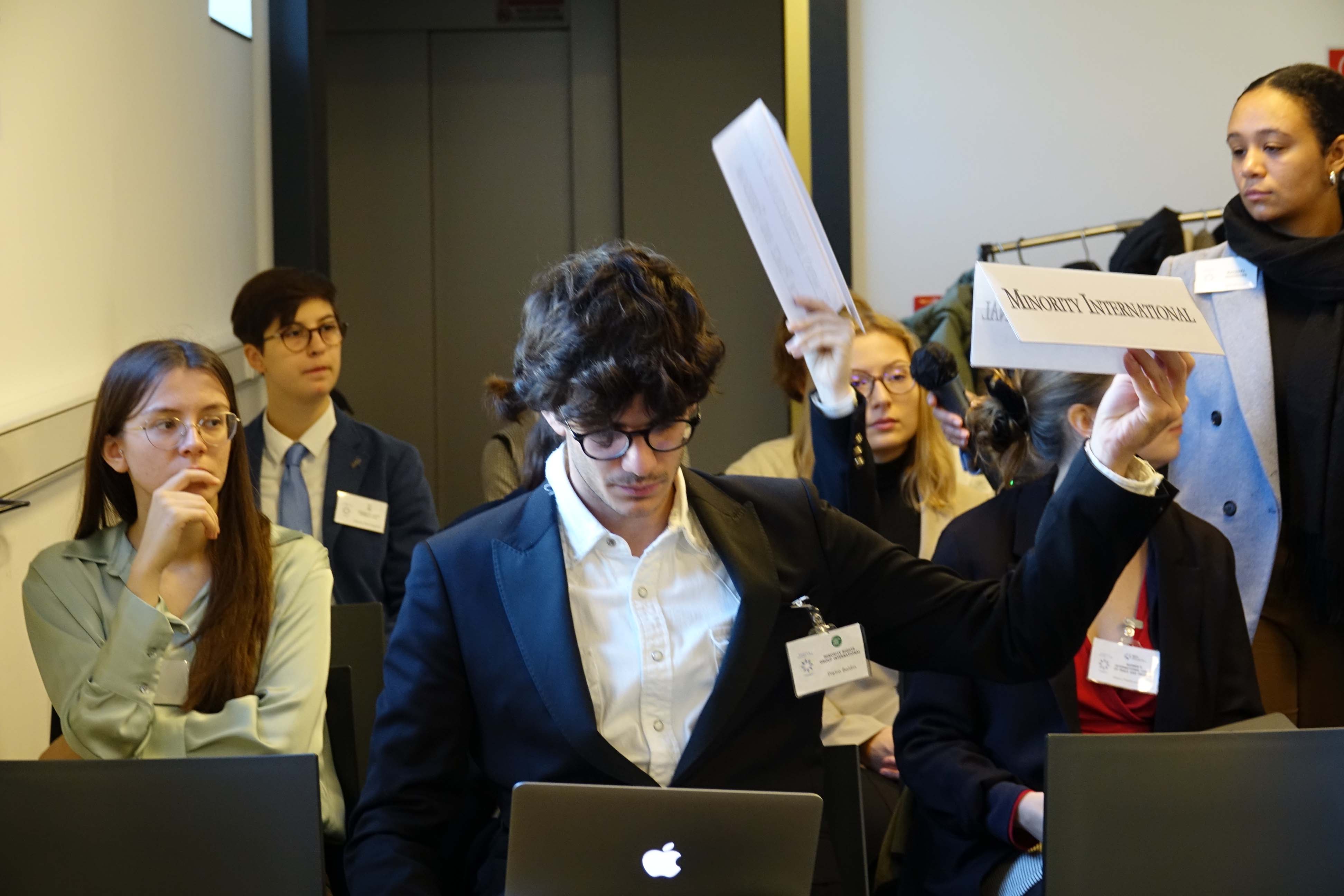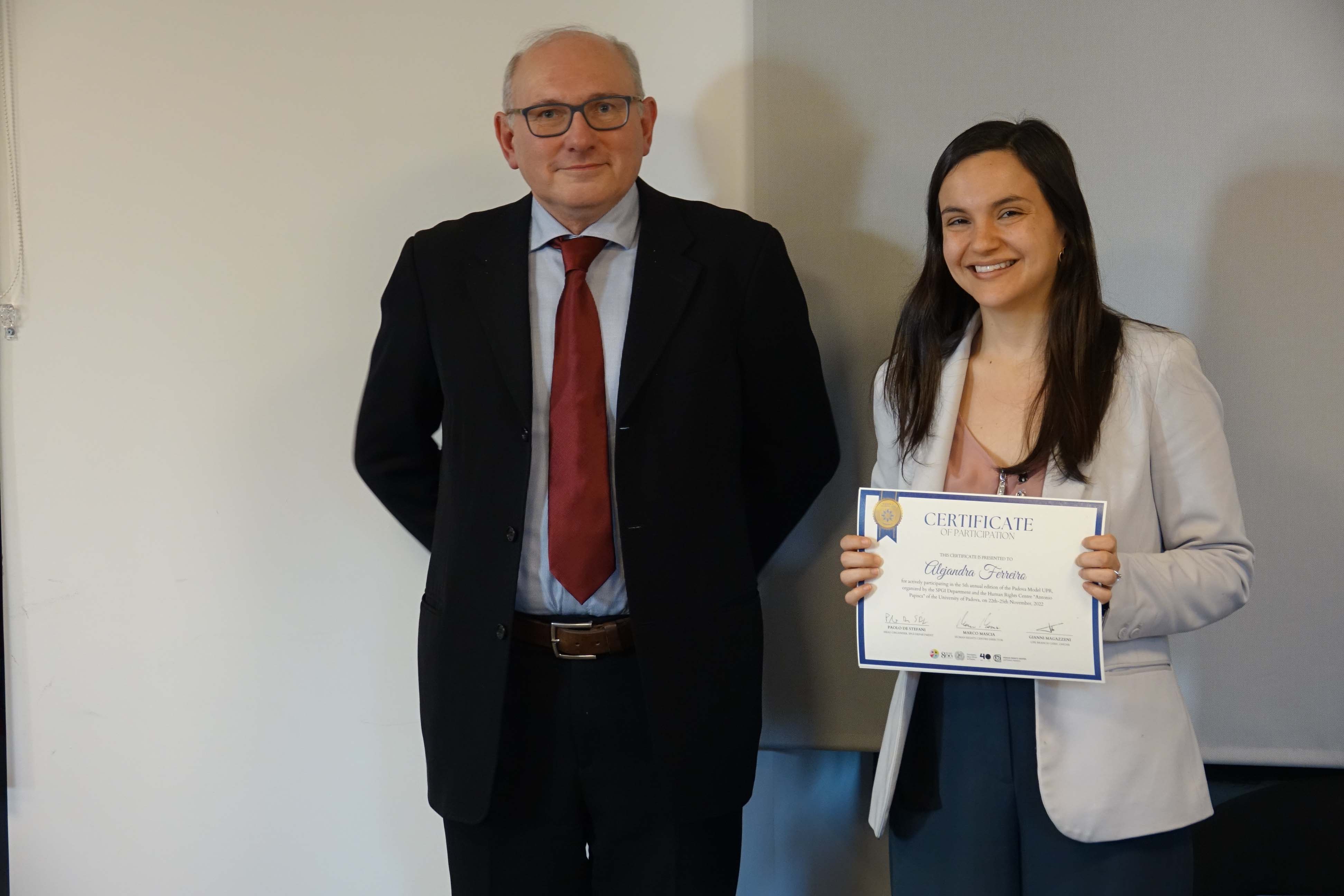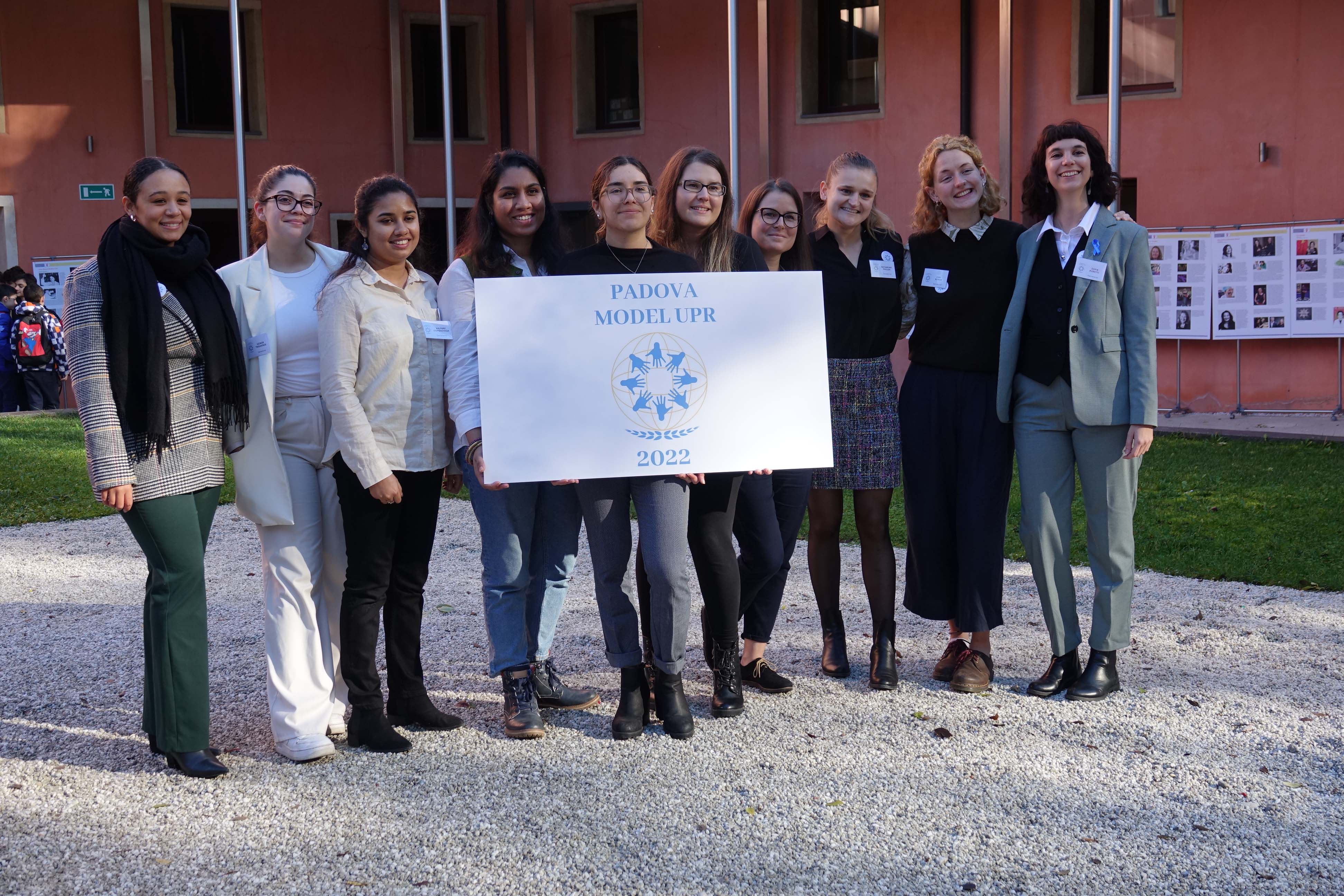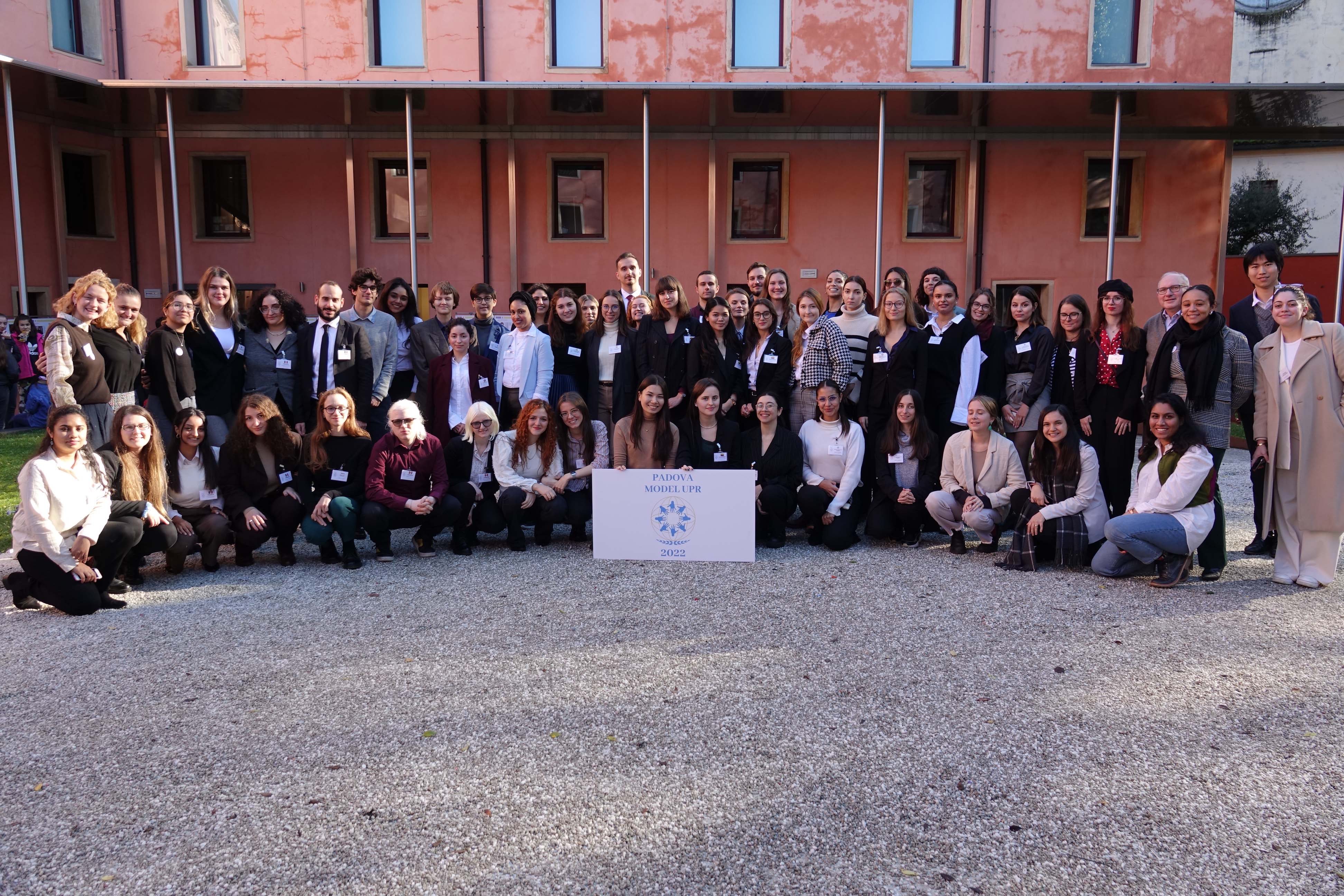The 5th edition of the Padova Model UPR has ended
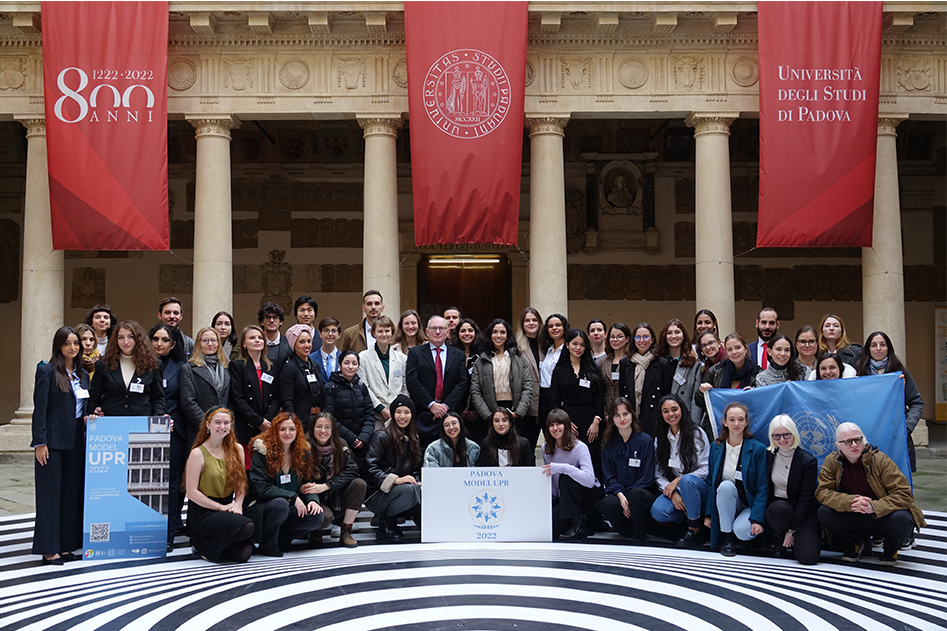
The 5th edition of the Padova Model UPR, held from 22 to 25 November 2022, came to its conclusion. The event was organised by an international team of students and former delegates, with the support of the Human Rights Centre “Antonio Papisca” and the Department of Political Science, Law and International Studies (SPGI) and the Archive "Peace Human Rights" of the University of Padova. The project is run in cooperation with the UPR Branch of the Office of the High Commissioner for Human Rights (OHCHR) of the UN and the NGO UPR Info. This year, 52 international students from 7 European universities participated in the simulation and the training activities associated. A special thanks to Nicoletta Zappile from UPR Info and Ambassador Federico Villegas, President of the Human Rights Council for attending the training sessions and providing insiders tips to the partecipants. The simulation, after two years online because of the Covid-19 pandemic, took place again in presence and was hosted by the beautiful premises of Palazzo della Salute, in Padova.
At the Opening on the 22nd of November, Ms Laia Valls Senties of the UPR Branch of OHCHR gave the opening remarks, underlining the innovative nature of the UPR and how important its work has been, since its beginning in 2008. Ms Valls Senties wished for the creation of a similar mechanism also at the regional level and within treaty bodies. She welcomed the ongoing commitment of the Padova Model UPR, as both an opportunity to learn about the UPR and to spread its work.
Mr Gianni Magazzeni, Chief of the UPR Branch of the OHCHR, during closing remarks on the last day of the simulation, congratulated the partecipating students. He explained that the UPR is a dynamic and ever changing mechanism, that is becoming stronger and diverse. Soon, 11 officiers will be appointed in each regional office to provide prompt answers to human rights challenges. He welcomed the students to join the UN and to bring forward the skills they acquired during the simulation and provide new inputs in order to strengthen the system and improve it from within.
After the four-day simulation and more than one month of training and preparation, these are the awarded students.
The Best State Under Review: The award went to the team playing the role of the State delegation of the Republic of Colombia composed of students from the Catholic University of Milan: Kyra Alliah Cabrera and Laura Berlin.
The Best Recommending State: The awarded team played the role of the State delegation of the Republic of Colombia composed of students from the Catholic University of Milan: Anna Natalia Rodriguez and Sabaeta Zeneli.
The Best NHRI Delegation: The award went to the team playing the role of the representatives of the Cameroon Human Rights Commission: Martina Dioni and Marie Zannoni, from the University of Padova.
The Best NGO Delegation: The best team was the one playing the role of the representatives of the International Work Group for Indigenous Affairs composed by Malek Ben Achour and Cherine Randi Sellami for the University of South-Eastern Norway.
The Best Performing Team According to the Participants: A joint award for the team playing the role of the State delegation of the Republic of Colombia: Anna Natalia Rodriguez, Sabaeta Zeneli, Kyra Alliah Cabrera, Laura Berlin and the team playing the representatives of Global Initiative to End all Corporal Punishment of Children: Marianthi Antoniou and Patrick Smith.
The written submissions and the performances of all participating teams were outstanding this year. Irrespective of who were the awarded players, participants and teams deserve the warmest congratulations.
All participants in the 2022 edition of the Padova Model UPR are invited to set up the new Secretariat team tasked to organise, hopefully, the 2023 Model.
And last but not least, these are the members of the amazing team that in 2022 made it possible the realisation of the Model: assisted by Paolo De Stefani, Ling Han and Sofia Pieretti, they were Alessia Surian, Raquel Huggins, Deri Ronan, Jimena Budar Quesada, Leonor Trigueiros, Lila Faskhutdinova, Silvana Zulmira Ferreira, Navid Panahi, Priscilla Mallmann (Master in Human Rights and Multilevel Governance, University of Padova), Katharina Freller (University of Graz), Kalpani Dambagolla, Piyumani Ranasinghe (University of South-Eastern Norway), Leah Rea (Ulster University).


